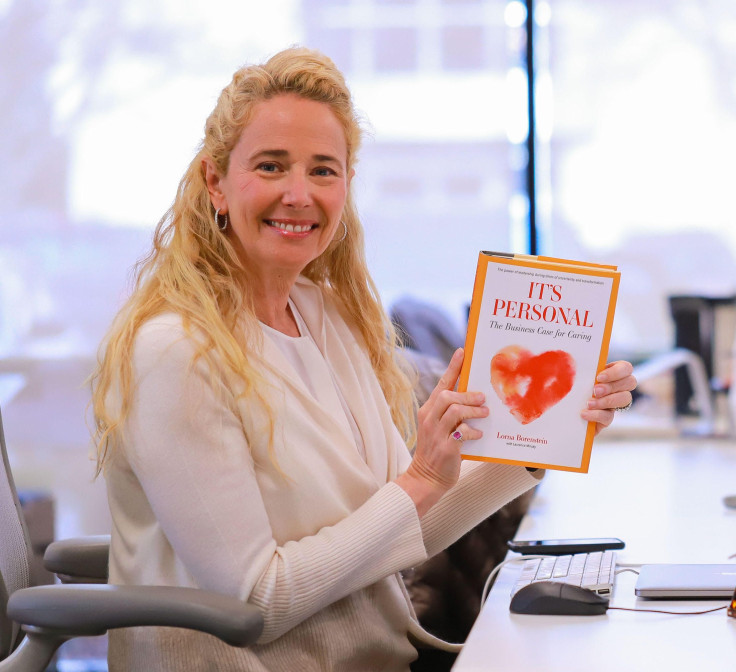'Well-Being Is Having Its Moment!'
Workforce well-being will happen when CEOs are open to solutions, says Grokker founder.

The powerful quote that headlines this article was shared by Delta Air Lines’ general manager of global health and well-being, Jae Kullar, when talking with my team about the pandemic’s impact on the way the company is taking care of its employees. Critically, it’s a moment that Delta’s employees are sharing with company executives -- because senior leadership is deeply committed to demonstrating self-care and encouraging the workforce to follow suit.
Delta’s CEO, Ed Bastian, is an example of an executive leader who takes employee caretaking personally. He’s clearly aware of the fact that, as the leader of the organization’s workforce, he represents everything the company stands for and delivers to customers. In fact, International Business Times/Social Capital ran a piece in which Bastian said, while discussing the concept of everyday people and the value of people helping people, “We pride ourselves at Delta as having that focus on our team and taking the very best care of our people so that they can take the very best care of you.”
Taking care of employees is baked into Delta’s overall approach to running an extraordinarily successful business, as measured by any number of qualifiers. Not only was Bastian, himself, named among the top 10 CEOs in Glassdoor’s Employees’ Choice Awards for the Top CEOs of 2021, but Delta is the highest-ranking U.S. airline on Glassdoor's 2022 list of "Best Places to Work ," ranking 18th on the 2022 list of 100 large companies.
What’s striking is that the company -- it’s leadership, in particular -- continues to attribute its success to employees.
Stress Is Skyrocketing--but There’s a Solution
Few employees have been hit as hard by pandemic-related stress and turnover as those working in the airline industry. With huge job losses leading to employee shortages and constant battles around unmasked passengers and other health risks, airline employees are on the front line of the workplace stress pandemic and it's a problem that requires out-of-the-box solutions.
Grokker’s relationship with Delta began in 2018, when the airline needed a comprehensive well-being engagement solution to meet the changing, large-scale needs of the carrier’s diverse and dispersed global workforce. Our partnership was made possible as a result of the company’s strategic alignment around taking care of employees.
By 2020, 82% of the carrier’s registered Grokker users were actively engaged on the platform--and this incredible metric wasn’t reached by accident. It is a direct result of the commitment demonstrated by Delta’s leadership, from Ed Bastian to front-line managers, who actively participate in living and promoting the company’s people-first values. The Delta Airlines workforce would not be as tuned-in to Grokker’s availability to them in the first place, nor would they feel as enthusiastic about participating in the interactive programs and challenges with their colleagues, let alone be supported in making Grokker a part of their everyday lives.
If this doesn’t demonstrate the power of leading by example, I’m not sure what does. When a company says it values employee well-being and walks the talk, then employee well-being becomes a part of the company, part of the employee experience. I like to say that it’s part of its DNA -- but it takes the right leadership to put it there, which perhaps makes the endeavor more intentional and less organic. In any case, a company culture doesn’t just “happen”; it’s deliberately cultivated and nurtured, and shines through to every stakeholder.
Prioritizing a Top-Down Approach
For companies that work hard to take care of customers -- but don’t prioritize a top-down approach to taking care of employees -- this is an important message. And now is the time to hear it and change tack. Organizations with large numbers of frontline workers, including airlines, are struggling to attract and retain their fraught employee base. Grokker Innovation Labs’ 2021-2022 Frontline Industries’ Leadership Sentiments research reveals that 86% of such employers have experienced an increase in voluntary turnover in their teams since the start of the pandemic--and that they’re as strategically focused on helping their workers fight burnout as they are on attracting and retaining workers.
What’s more, a remarkable 98% of research respondents feel they have at least some ability to positively influence team culture, making managers central to the engagement and retention equation. The interconnectedness between employee well-being and job satisfaction -- with manager support at the center -- has never been more obvious. It also syncs with Delta’s recent experience, when faced with the latest Omicron-related challenges (and recovery), which Bastian referred to in a Harvard Business Review interview as “the final kick in the teeth from the pandemic.” Bastian explained that, thanks to the power of authentic and transparent leadership, “Our employee engagement scores have stayed just as strong throughout the pandemic as ever because there’s a real pride in what we do.”
Too often, the rank and file feel an absence of support from managers. For Delta, relying on leadership and worker solidarity during these unprecedented times has proved to be the right way to go.
At the end of the day, it’s imperative that CEOs and leaders stop paying lip service to work-life balance and well-being, and start proactively creating an environment where employees feel supported and encouraged--and genuinely feel that their well-being matters.
Lorna Borenstein is the CEO and founder of Grokker, the global employee engagement engine for Pfizer, Target, CVS Health, Delta Air Lines and more.
Lorna is the author of “It’s Personal: The Business Case for Caring,” an industry leader in the workforce well-being space, and a sought-after speaker who was recently interviewed by Financial Times and on podium at The Economist's "Wellbeing at Work.”
In 2021, she was named a Top 100 Social Capital CEO by the International Business Times.
© Copyright IBTimes 2024. All rights reserved.





















